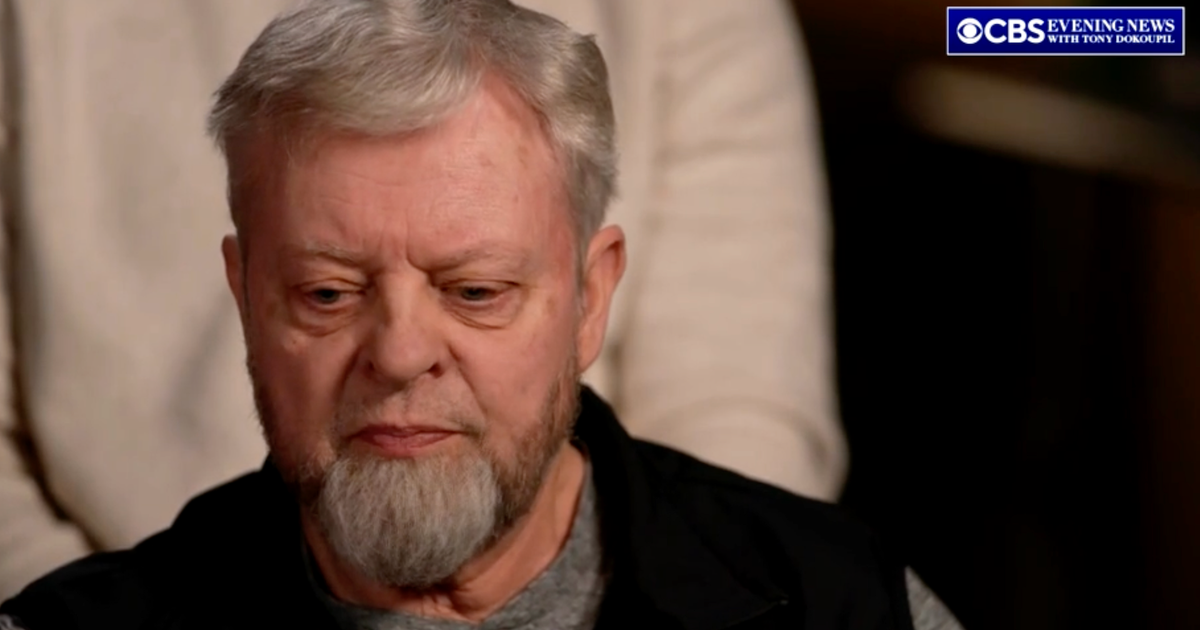A Minnesota Myth Sparked 'Kumiko: The Treasure Hunter'
MINNEAPOLIS (WCCO) -- An urban legend from the snowy, desolate plains of Minnesota was the catalyst that led to Kumiko: The Treasure Hunter, a new, haunting film from brothers David and Nathan Zellner.
The filmmaking siblings say they became obsessed with the strange Minnesota story after it popped up in the news more than a decade ago. As the legend goes, a young Japanese woman froze to death while allegedly searching for the fictional, money-filled briefcase Steve Buscemi buried in the Coen brothers' cult classic Fargo.
Since the news came in an era before Twitter and Facebook, the Zellners say they searched message boards to try to piece together what had happened to this mysterious woman.
"Just the fact that there was so little information about it really piqued our curiosity and made us want to solve the gap," said writer/director David Zellner.
The brothers' cinematic solution to that gap is a visually striking and emotionally elusive work that explores concepts of truth, adventure and isolation. Rinko Kikuchi (Pacific Rim, Norwegian Wood) plays the young, confused protagonist who grows obsessed with Fargo after finding a VHS copy on a Japanese beach.
The fake "based on a true story" screen at the start of the movie is taken seriously by the shy, lonely Kumiko, who watches and re-watches her cassette copy in order to map out exactly where the briefcase is buried in the snow. Apparently, she thinks winter is constant in Bemidji.
As soon as her treasure map is finished, her life falls on a trajectory so simple that her adventure resembles that of a video game character. Kumiko leaves everything she knows, including her beloved, noodle-eating pet rabbit, and steals her way onto an airplane headed for Minneapolis. With her moral compass set to fortune finding, she steals money and ditches cab drivers as easily as Nintendo's Link smashes gem-holding pots in the Zelda series.
Like Link, Kumiko faces virtually no consequences for her criminal actions. But the Zellners aren't shooting for realism. What the brothers focus on instead is the journey itself.
"There's the antiquated notion of someone going on a treasure hunt in the modern age," David Zellner said. "That was fascinating to us, because it's something from the Age of Exploration, with uncharted lands and conquistadors and that sort of thing."
In the New World of Minnesota, Conquistador Kumiko runs into several quirky Midwesterners, who give the film hints of dark comedy. For instance, some Evangelicals try to save her soul at the airport, an elderly woman endeavors to show her a good time at the Mall of America, and a rural sheriff's deputy (played by David Zellner himself) attempts to find a translator for her at a Chinese restaurant.
Some critics have found that last attempt so silly as to be unbelievable. However, when one looks back at news stories about the actual Japanese woman who died in near Detroit Lakes, this part doesn't appear to be fiction.
"Some people thought [the scene] as being some slight," David Zellner said, "but it turns out it was the one thing we were actually true to, in terms of her on-goings in America."
The rest of the Zellners' movie is just loosely based on the real-life woman. Even so, some might find it strange that the two didn't opt to put a "based on a true story" note before their movie. But for the brothers, such notes nowadays are a cheap marketing tactic, especially after the Coen brothers played so ingeniously with them in Fargo nearly 20 years ago.
"They did something incredibly interesting and smart with that," David Zellner said. "But a lot of contemporary films use it over and over again...they kind of slap that label on it, and there's nothing more false."
He added that by focusing solely on the urban legend in Kumiko, and not the real-life story, he and his brother were able to hone in on truth at a human level, through stylization instead of a series of facts.
What exactly the movie's truth is, however, is tough to pin down. Besides the human longing for adventure and purpose, there's also something to Kumiko about how difficult it is for people to understand each other, for people to find their places in the world. While on the surface, the movie might appear like a heavily stylized adventure, there lies a palpable sadness underneath.
The film's ending, especially, is as ambiguous as a Rorschach test. Does Kumiko succeed or fail? Does she suffer from a mental illness? Is she so simple-minded as to be a beautiful fool, or is she someone in need of serious help?
To the Zellners, any interpretation is legitimate.
"We've been all over the world this past year, and people take away different things," David Zellner said. "And they're all valid."
Kumiko: The Treasure Hunter is playing at the Lagoon Cinema.







